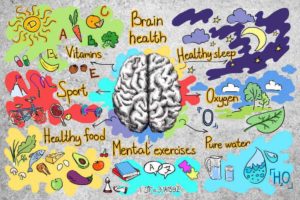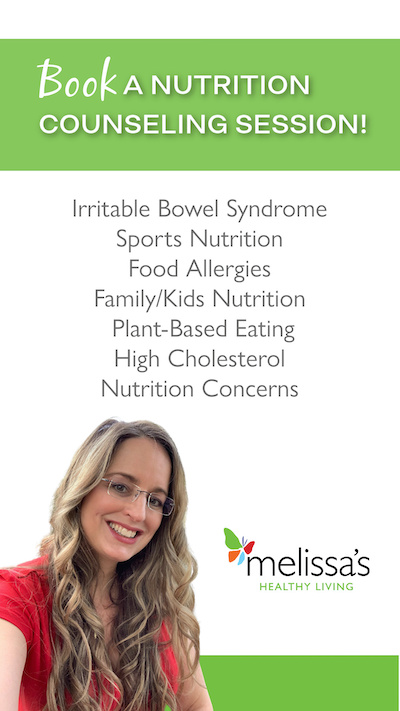
If you’re wondering how to support your brain, we’ve got the answers so you can think and feel your best! Take a deep breath and make sure you’re not neglecting your most important organ!
Brain health, memory, and focus are finally getting the attention they deserve. We tend to highlight different areas of health, such as heart and eye health and stress management, but somehow, brain health often gets lost when it’s just as important! We now have the science to show lifestyle has a profound impact on short- and long-term brain health and function. Over the next few blog posts in my brain health series, I’ll describe how your brain works and how you can support your brain health.
Nootropics, memory boosters, and brain games. Sound familiar? You’ve probably seen these words while scrolling the latest health news headlines. Trending hashtags such as #brainbetter, #brainhealth, and #nootropics are populating social media platforms.
Is this just hype or can you really feed your brain to give your body what you’ve been looking for? Can you support your memory, focus, concentration, accuracy, learning, and reasoning? In short, the answer is “yes!” But to understand why it’s important, we must first have a sense of how your brain works.
How do our brains work?
This might seem a bit science-heavy at first, but take the challenge and put your brain to work! There’s a lot involved in supporting your brain function, but let’s start with the basic unit of the nervous system – neurons.
- Neurons are cells that carry electrical impulses that receive and transmit signals. Essentially, they are speaking to each other using chemicals called neurotransmitters.
- These neurotransmitters communicate signals through gaps called synapses (remember this fact for later!).
- The passing of signals between neurons allows the conversation between the brain and your body to occur.
- All thoughts, reasoning, and both voluntary and involuntary movements use neurons. (1)
- Most neurons are not replaced during your lifespan (with a few exceptions), so scientists use them as an aging marker.
You don’t have to be a scientist to know you want to support your neurons and brain health! Strong connections between neurons are crucial for good brain function, memory storage, and learning.
 How can diet impact neural connections?
How can diet impact neural connections?
- Eating more phytonutrients – plant compounds found in plant-based foods – can help support interneuron signaling (neuron-to-neuron communication) and help support neurogenesis (when new neurons are formed in the brain). (2)
Neuroplasticity and our brain’s pathways
Now that you know how neurons speak to each other, it’s essential to understand neuroplasticity.
- Neuroplasticity is the process of experiences reorganizing neural pathways in the brain and changing neural connections.
- Neuroplasticity changes as we grow, learn, and age. For example, when you laugh at a new type of humor you didn’t find funny before, your brain is reorganizing!
- Each new experience helps reshape neural pathways in the brain.
When we learn new tasks or memorize new information, connections in our brains change. You’ve likely heard you can’t teach an old dog new tricks. This is partly because plasticity can decrease as we age, making those new tricks much harder to learn. However, neuroplasticity is not fixed! Your brain can change and improve through several factors, such as eating right, exercising, brain games, and more.
What helps our brain focus?
Many things help our brain focus. One is brain-derived neurotrophic factor (BDNF), which supports the growth of new neurons and synapses.
- Synapses improve information flow across neurons, and BDNF supports the pathways.
- BDNF plays a vital role in both memory processes and learning. (3)
- BDNF is a crucial neuroprotein involved in cognitive function.
Several things may increase BDNF:
- Exercise
- Certain foods or phytonutrients
- Body mass index
- Sunlight (4)
Other factors that can impact BDNF include:
- Sleep duration
- Stress level (5)
I asked brain health expert and researcher Dr. Gary Small, MD, to tell us more about how BDNF affects brain performance and how to support brain health.
“Physical exercise produces an extraordinary chemical that functions as a brain cell activator—brain-derived neurotrophic factor, or BDNF. and stimulates healthy ones to sprout more branches for better neural communication and brain performance.”
Supplements for Brain Health
Many of my clients ask how to support their brain health and are looking for natural nootropics – brain health supplements that purport to enhance memory or cognitive function. Dr. Gary Small defines nootropics as “natural or synthetic substances that are taken to improve mental performance, including memory, focus, creativity, intelligence, and motivation. The most common nootropic is caffeine, which works by blocking adenosine receptors in the brain, making people feel less tired. A low to moderate caffeine intake of 40 to 300 mg increases alertness and attention.”
In addition to exercise, sleep, boosting plant-based foods, and making connections, many people want or need more. My clients come to me wanting to maximize their health potential, and it’s no longer just about disease prevention or treatment. I hear, “I want to feel my best every day. I want to age well and stay sharp and active.” While whole foods should continue to be our main focus, it is worth carefully evaluating supplements for potential benefits, including brain health. For example, when providing nutrition counseling, I regularly assess if micronutrient needs are met, and supplements may be used to fill in any nutrition gaps.
I’ve always emphasized a food-first mentality and choosing whole foods over supplements. However, I can’t neglect the fact that there are times when it can be difficult to get certain nutrients from foods. Or, the food isn’t accessible or isn’t convenient. For example:
- 500-1000 mg of curcumin = 7 teaspoons of turmeric – that’s a lot of turmeric! If this amount is recommended in a supplement for a specific benefit, it would be too difficult or impractical to consume in your diet alone.
Check back in two weeks for interviews with research neuroscientist Nicole Avena, Ph.D., and Dr. Gary Small, MD, researcher and brain health expert to learn more about how to support your brain health.
References
- https://qbi.uq.edu.au/brain-basics/brain/brain-physiology/how-do-neurons-work)
- Halas M. (2019) Part 5: Phytonutrients. The Plant-Based Boost Nutrition Solutions for Athletes and Exercise Enthusiasts. 2019
- Yamada K, Nabeshima T. Brain-derived neurotrophic factor/TrkB signaling in memory processes. J Pharmacol Sci. 2003; 91(4):267-70
- Molendijk ML1, Haffmans JP, Bus BA, Spinhoven P, Penninx BW, Prickaerts J, Oude Voshaar RC, Elzinga BM. Serum BDNF concentrations show strong seasonal variation and correlations with the amount of ambient sunlight. 2012;7 (11):e48046. doi: 10.1371/journal.pone.0048046. Epub 2012 Nov 2.
- Bárbara C. Monteiro1, Suzana Monteiro1, Maristela Candida1, Nathalia Adler1, Flavia Paes1, Nuno Rocha2,4, Antonio Egidio Nardi1, Eric Murillo-Rodriguez3,4 and Sergio Machado1,4,5,* Relationship Between Brain-Derived Neurotrofic Factor (Bdnf) and Sleep on Depression: A Critical Review Clinical Practice & Epidemiology in Mental Health, 2017, 13, 213-219 DOI: 10.2174/1745017901713010213



